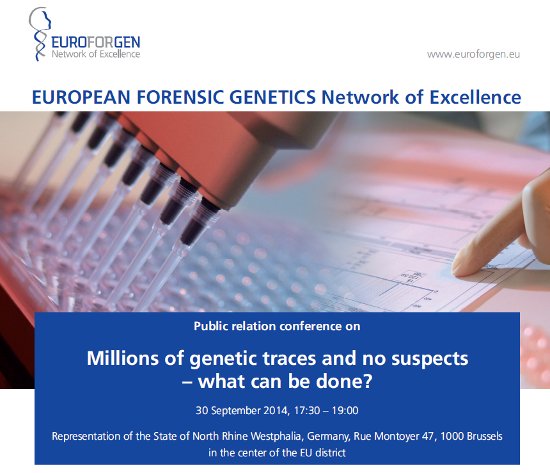Conference of the EUROFORGEN research project

Forensic genetics is a crucial area with respect to public safety. In spite of that, the discipline is struggling for research funding and government attention. The participants of the EUROFORGEN research project have emphasised this problem on a PR conference that took place on 30 September 2014 in Brussels. During the meeting, forensic experts have presented the results of the latest research in this academic field.
There are 1,4 million entries in the European DNA databases. They come from unidentified perpetrators, hence the evidence is useless if there was no suspect in a case. Forensic experts united in the EUROFORGEN-NoE project (European Forensic Genetics Network of Excellence) are trying to change this. Twelve research groups, including one from the Jagiellonian from 8 European countries participate in the project. Its aim is to develop and intensify research in the area of forensic genetics. In a few years, this should help enable using any biological material, e.g. dandruff, to create a genetic portrait of suspects.
The aim of EUROFORGEN is to develop more modern and precise methods of crime investigation. An important task is to create a network of research teams, which will facilitate international cooperation and training. A crucial part of the project is to create a "virtual research institute" which will consolidate all the scientific activity in this area on the European level.
The Polish coordinator of the project is Dr hab. Wojciech Branicki from the JU Department of Genetics and Evolutionism. For more information, please visit: www.euroforgen.eu.
Published by: Mariusz Kopiejka

